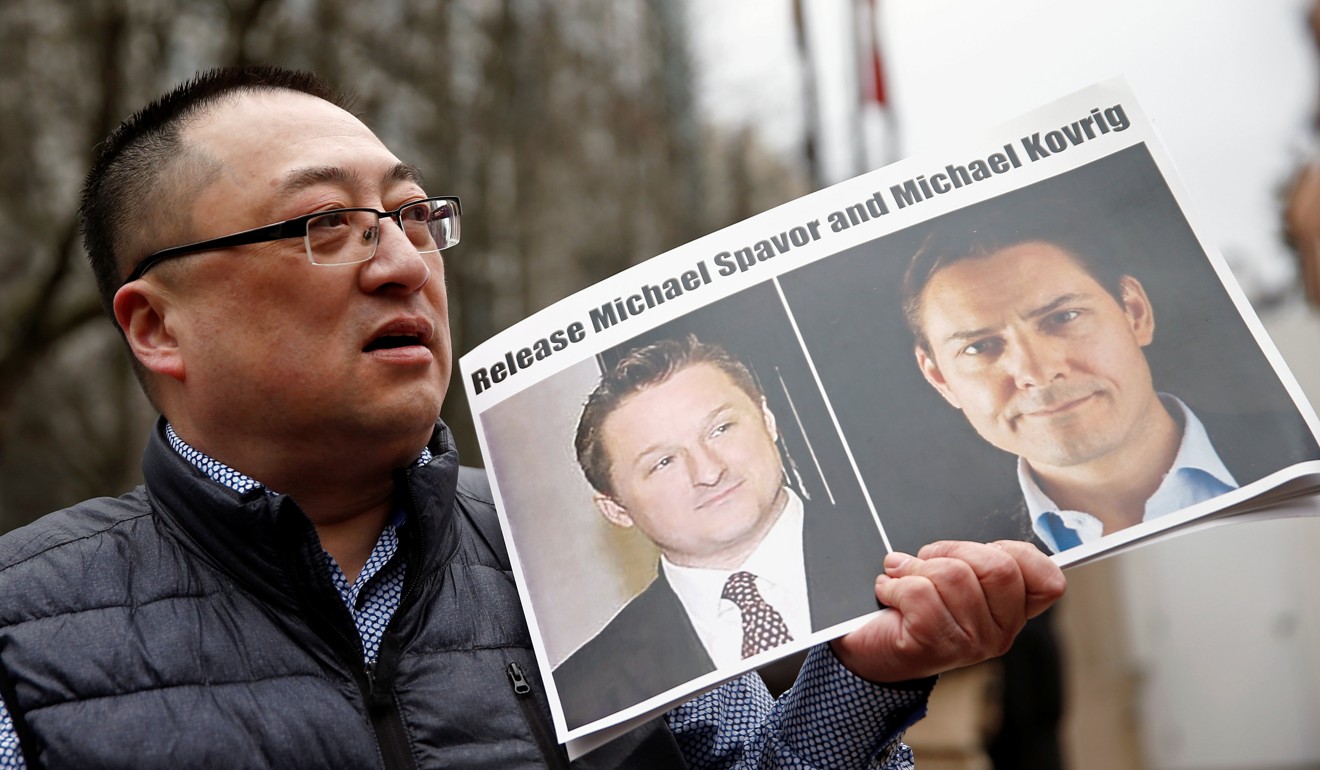If friends of Huawei want to hit the US where it hurts, they should tackle the legitimacy of US sanctions
- Beijing’s supporters won’t have a strong case against Washington if they focus on legal rights of individuals. They need to ask different questions, like: what gives the US the right to ban foreign companies from doing business with Iran?

In the final stage of Patrick Ho Chi-ping’s bribery trial in New York last week, the prosecution held back, the judge doled out a lenient sentence, and the convicted man made a tearful apology.
The sentencing of Hong Kong’s former home affairs secretary offered hope for both sides. The United States government raised the risk factor for companies looking to grow internationally by paying corrupt fixers for no-bid contracts. And a 69-year-old man, who erred but didn’t do grave harm to anyone in the end, is likely to get most of his remaining years back.
From his arrest at John F. Kennedy International Airport in New York to a likely early parole, Ho may end up spending less than three years behind bars.
Meanwhile, Huawei Technologies chief financial officer Meng Wanzhou is restricted to Vancouver, a city she apparently likes since she owns two multimillion-dollar properties in its stylish neighbourhoods of Dunbar and Shaughnessy.
Meng is living in one of them and can spend her days anywhere in the Vancouver area while the Canadian judicial system weighs the evidence presented by the US that she deceived banks about her company’s alleged connection to a telecoms equipment supplier that sells to Iran.
As events unfold in the cases of Ho and Meng, Canadians Michael Spavor and Michael Kovrig – who were detained in China on December 10 – have neither had access to lawyers, nor been formally charged.
Their time in detention, on accusations by the Chinese government that the two acted together to steal state secrets, is already three times longer than the time it took for the US federal court system to convene Ho’s initial pretrial hearing, where the defendant, his defence team and the international media heard why he was detained in November 2017.
It’s entirely possible Ho will have settled back in Hong Kong before Spavor and Kovrig see the light of day. Meng’s predicament is more difficult to predict, but you can be sure she won’t be held incommunicado for four months.
Those who wish to portray the US and Canada as hypocrites are fighting a losing battle if they focus on the treatment of Ho and Meng. In the US and Canada, sending someone to a jail cell requires a preponderance of evidence that will stand up to public scrutiny.
In China, not only is a trial free of political considerations unlikely, it would also go against the wishes of President Xi Jinping, who in August last year railed against “the path of Western constitutionalism, separation of powers or judicial independence”.

Let’s take a quick poll. If you were being detained by national law enforcement officers at an airport, would you prefer to be in Beijing or Vancouver? I thought so.
The respect for individual sovereignty in Canada and the US, and the legal protections this requires, is why so many wealthy and well-connected Chinese citizens buy properties there and have their children educated in schools there.
These points are not intended to render a blanket judgment on China. Judicial procedures are one aspect of a much larger picture that must also include economic development, environmental protection and other metrics that affect people’s daily lives.
And the judicial systems of the US and Canada are far from perfect. I’d need a separate column to begin to show how these systems have let down minorities in both countries.
Still, if China’s supporters want to use the examples of Ho and Meng to their advantage, they need to back up and ask different questions.
What gives the US government the right to determine what activities constitute corruption and bribery? What gives Washington the right to ban companies of any nationality from doing business with Iran?
The US has exerted its economic and military dominance of the world to set international standards of conduct, and anyone who is suspected of violating these standards runs the risk of detention.
If China feels the cases of Meng and Ho are violations of sovereignty, it needs to start an international debate over whether the US Corrupt Foreign Practices Act and sanctions against companies doing business in countries Washington doesn’t like are legitimate enough for the US to detain and try foreign citizens.
The economic transformation China has achieved gives Beijing the right to raise its voice on the international stage and question the American order. Why does it hesitate?
Robert Delaney is the Post's US bureau chief